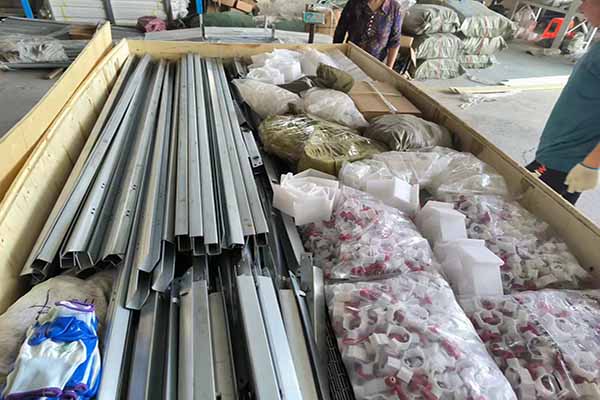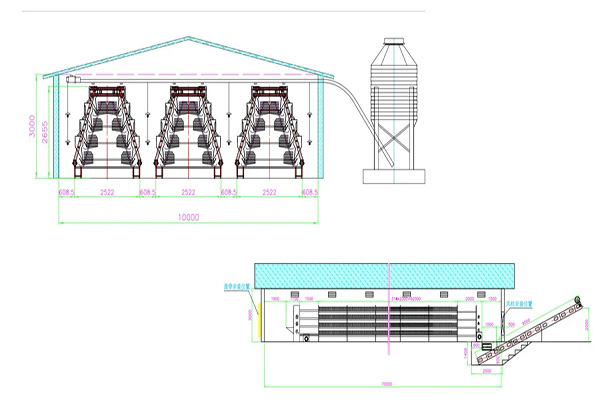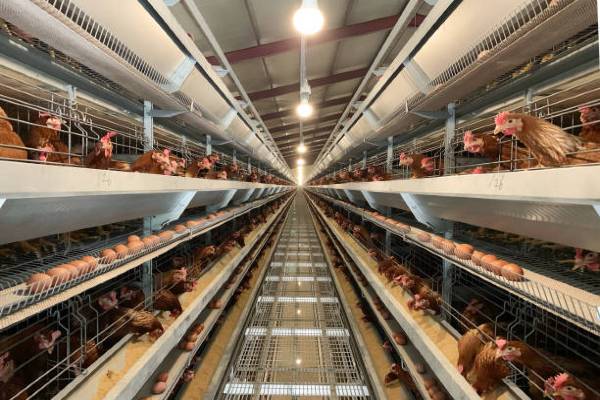Egg Farms in Ghana: A Comprehensive Guide to the Poultry Industry
Time : 2025-05-13
Are you interested in exploring the egg farms in Ghana? Look no further! In this article, we’ll dive deep into the world of egg production in Ghana, covering everything from the history of the poultry industry to the challenges and opportunities it presents. So, let’s get cracking and uncover the fascinating details about egg farms in Ghana!
Introduction to the Poultry Industry in Ghana
Ghana, a country located in West Africa, has seen significant growth in its poultry industry over the past few decades. With a growing population and increasing demand for protein-rich foods, the poultry sector has become a vital part of the country’s economy. One of the key players in this industry is the egg production, which has seen a remarkable rise in both quantity and quality.
The History of Egg Production in Ghana
The history of egg production in Ghana dates back to the early 20th century when small-scale poultry farming began to emerge. Initially, most of the eggs produced were for local consumption. However, with the increasing demand for eggs and other poultry products, the industry started to expand, both in terms of scale and variety.
Over the years, the government of Ghana has played a crucial role in supporting the poultry industry. Through various policies and incentives, the government has encouraged both local and foreign investors to set up egg farms and processing plants. This has led to a significant increase in the production capacity of the industry.
The Role of Egg Farms in Ghana
Egg farms in Ghana are the backbone of the country’s poultry industry. These farms are responsible for producing the eggs that feed the local population and are also exported to neighboring countries. Here are some key aspects of egg farms in Ghana:
Types of Egg Farms
Egg farms in Ghana come in various types, including free-range, battery, and organic farms. Free-range farms allow hens to roam freely, which is believed to result in healthier and tastier eggs. Battery farms, on the other hand, confine hens to small cages, which is a more common practice due to its efficiency.

Production Process
The production process at egg farms in Ghana involves several stages. First, hens are bred and raised in a controlled environment to ensure their health and well-being. Once they reach maturity, they are allowed to lay eggs, which are then collected, cleaned, and packed for distribution.
Quality Control
Quality control is a top priority for egg farms in Ghana. To ensure that the eggs meet the required standards, farmers and processors use various methods, including regular testing for contaminants and adherence to strict hygiene protocols.
Challenges Faced by Egg Farms in Ghana
While the egg farming industry in Ghana has seen considerable growth, it also faces several challenges that need to be addressed:
Feed Availability and Cost
One of the biggest challenges for egg farms in Ghana is the availability and cost of feed. Poultry feed primarily consists of corn and soybean meal, which can be expensive and subject to price fluctuations.
Market Access
Access to markets is another challenge. Many egg farmers struggle to find reliable buyers for their products, which can lead to excess supply and lower prices.
Climate Change
Climate change is also a c oncern for egg farms in Ghana. Extreme weather conditions can affect the health of the hens and the overall productivity of the farms.
oncern for egg farms in Ghana. Extreme weather conditions can affect the health of the hens and the overall productivity of the farms.
Opportunities for Growth in the Egg Farming Industry
Despite the challenges, there are several opportunities for growth in the egg farming industry in Ghana:
Investment in Technology
Investing in modern technology can improve the efficiency and productivity of egg farms. This includes automation of processes, better feed management systems, and advanced disease control measures.
Value Addition
There is a growing demand for value-added egg products, such as pasteurized eggs, egg whites, and egg yolks. By diversifying their product range, egg farms can tap into new markets and increase their revenue.

Export Potential
Ghana has the potential to become a significant exporter of eggs and egg products. By improving the quality of their products and establishing strong supply chains, Ghanaian egg farms can explore new markets in Africa and beyond.
Conclusion
Egg farms in Ghana play a crucial role in the country’s poultry industry, providing a vital source of protein for the local population and contributing to the national economy. While challenges remain, the opportunities for growth are abundant. By addressing the current issues and capitalizing on the potential, the egg farming industry in Ghana can continue to thrive and contribute to the country’s development.











